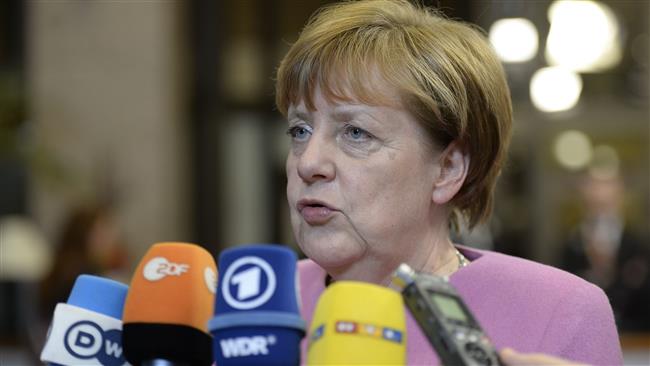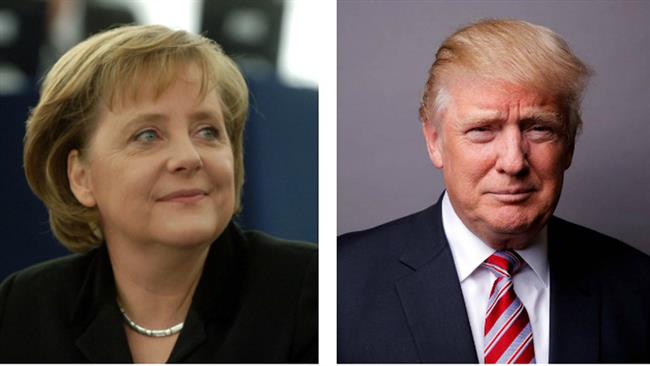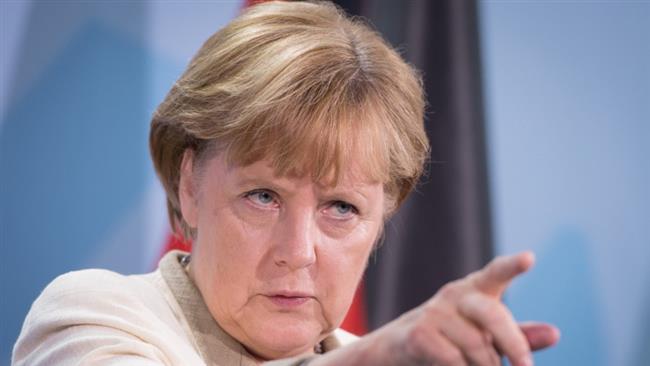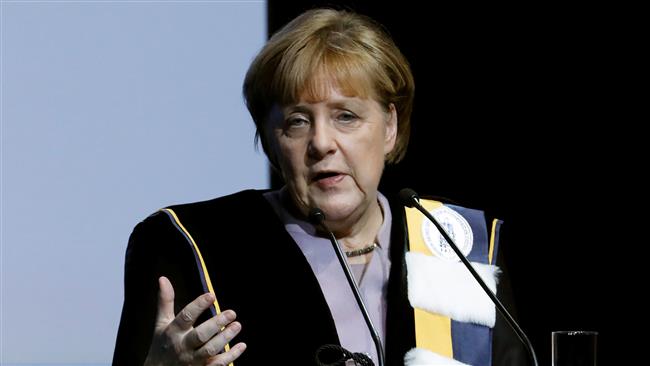Merkel to meet Trump in US visit
German Chancellor Angela Merkel is to travel to the United States to meet with President Donald Trump and discuss with him issues of mutual concern.
The meeting, due to take place at the White House on Tuesday, would be Merkel’s first face-to-face with Trump since he took office on January 20 this year. Merkel has been Germany’s chancellor since 2005.
The leader of Europe’s most powerful economy has emphasized that she would be representing the European Union (EU) in her meeting with the US president.
“I will of course point out that for us, our country and our membership in the European Union are two sides of the same coin,” Merkel said at the EU headquarters in Brussels, Belgium, ahead of the visit.
Trump and his officials have previously questioned the institutional foundation of the EU.
A spokeswoman for Merkel has said the two leaders would discuss “bilateral and international topics, and transatlantic ties.” US sources have said the two would discuss issues related to NATO, refugees, the EU, and Russia.
On almost all of those topics, Trump has adopted stances diverging — sometimes radically — from those of European leaders. One such area would be Russia. Trump has said he favors better, possibly even strategic cooperation with Russia. European leaders, on the other hand, have had serious reservations about ties with Moscow, particularly over the Ukrainian conflict.
Trump is “very interested in hearing her (Merkel’s) insights on what it’s like to deal with the Russians,” a US official said anonymously.
Transatlantic trade is another area of concern for Berlin. Trump has said he plans to renegotiate the Transatlantic Trade and Investment Partnership (TTIP).
Read more:
- US, EU should press ahead with TTIP despite opposition: Obama
- Obama using Germany visit to win support for TTIP
Trump ran on a platform of giving priority to US-manufactured products and placing fresh taxes on imported goods, German products included.
In response to Trump’s protectionist stance, Merkel said on Thursday that she would fight to preserve free trade and a strong Europe, threatening to impose retaliatory measures, including higher tariffs for American companies.
Der Spiegel, a leading German weekly news magazine, earlier reported, “If the [Trump] government is serious about its new tax, the chancellery has already prepared a series of retaliatory measures.”
In 2016, Germany had a record trade surplus of more than eight percent of its gross domestic product. Meanwhile, the US’s trade deficit has reached its highest level since March 2012.
‘All wars have rules. All of those rules have been broken’ by Israel
VIDEO | Report flags India’s violation of rights of Rohingya detainees
Turkey's foreign minister meets Syria's de facto leader in Damascus
'Next to impossible' to rescue patients from Gaza's Kamal Adwan Hospital: Director
VIDEO | Vietnam current prosperity
Report blames gasoil exports for shortage at Iranian power plants
VIDEO | Hind Rajab Foundation names Israeli war criminals vacationing after Gaza genocide
VIDEO | Australians rally for Gaza ahead of Christmas festivities















 This makes it easy to access the Press TV website
This makes it easy to access the Press TV website